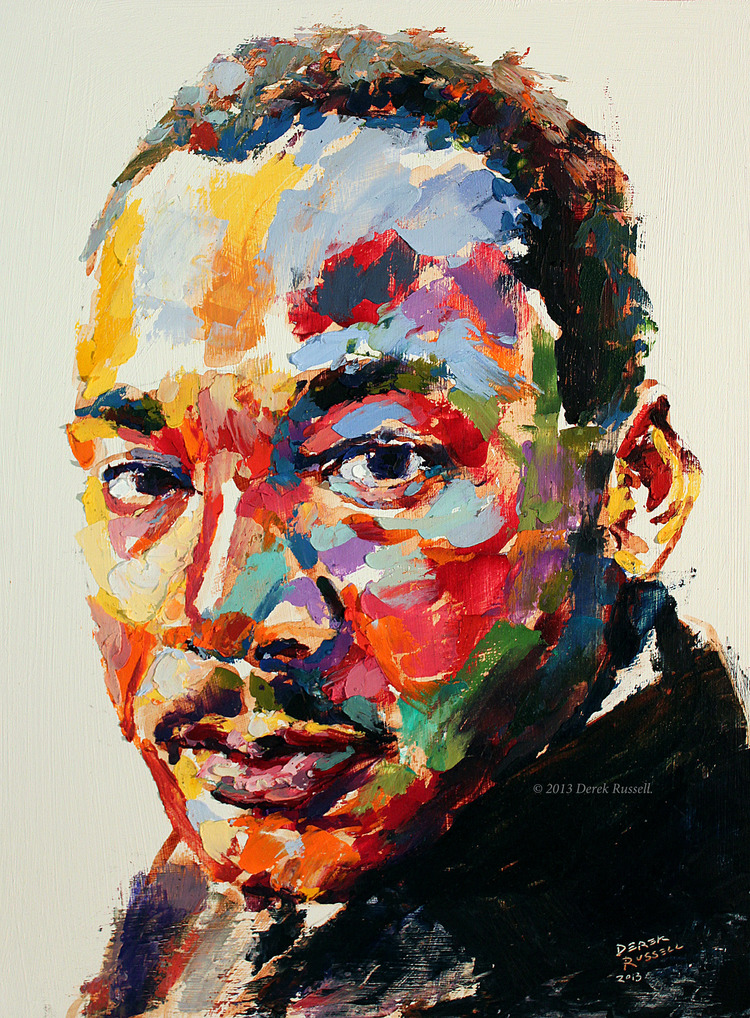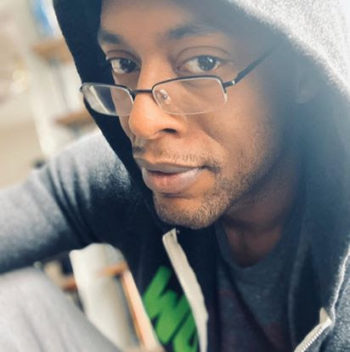“But I must confess that I am not afraid of the word ‘tension.’…there is a type of constructive, nonviolent tension which is necessary for growth….to create the kind of tension in society that will help men rise from the dark depths of prejudice and racism to the majestic heights of understanding and brotherhood.”
-MLK, Letter from Birmingham Jail, 1963
“We have fought hard and long for integration, as I believe we should have, and I know that we will win. But I’ve come to believe we’re integrating into a burning house.”
-Martin Luther King Jr. to Harry Belafonte shortly before King’s assassination, 1968

When King’s visibility was at its zenith, the year was 1963 and there were exactly three TV broadcast companies (ABC, NBC, and CBS). On August 28, 1963, all three of them live broadcast the March on Washington. FM radio was integrated into cars the same year. If you were watching TV on August 28, 1963, you were watching the same thing as most of your fellow citizens. When you tuned into analysis about the speech, you had only a handful of options. The event was undoubtedly one of the most impactful demonstrations in US history, and when I consider the state of media today, I can’t help but wonder if the event was so impactful in part because America’s attention was so collectively focused.
Sixty years later, we are squarely in the information age and it brings us a special kind of challenge as we think about storytelling and the ability to shape and share a collective dream. We live in a world constantly encouraging us to exist within the version of reality that maximizes the comfort of the familiar and agreeable (even when egregious), while minimizing the pain of self-reflection inherent in shifting our worldview. Today’s media landscape provides greater diversity of mediums and less diversity of messaging.
With this in mind, I come into this King holiday paradoxically holding a tremendous amount of confidence and trepidation; contentment and discontent; patience and listlessness. To wax Gibran, I am deeply aware of the “shell encasing my understanding,” as a shell on the verge of breaking. I am on the verge of realizing a truth. Perhaps more importantly, I am on the verge of unapologetically, unabashedly, dreaming. I am on the verge of integrating lessons somewhere between Harai’s historical analysis in Sapiens with lessons from Butler’s near-future analysis in Parable of the Sower. Put differently, I’m on the verge of an audaciousness historically reserved for royals.
I want a different world than the one I was born into. I want a world wherein the small bands that once supported close familial ties remain, while the flexibility of easy travel and exploration is accessible to all. I want engineers and other planners to design with this paradoxical existence in mind. I want to maximize our sense of connection through encouraging the growth and empowerment of individuals. I want a sustainable world–built “green” from the ground up. I want an end to the nation-state. Let migratory bird patterns and jetstreams define our borders. Let our megacities be indistinguishable from our flora and fauna. Let us no longer distinguish between ourselves and the “natural” world. Let us be and build naturally in this natural space.
I want to use the same algorithms that keep us siloed today doing just the opposite tomorrow. I want artificial intelligence designed to maximize health and wholeness over profit margins and bottom lines. I want indigeneity realized for all of us. I want the wisdom of our ancestry maximized in the 21st century. I want “whiteness” replaced by identities much older than the idea of Europe. I want reparations that bind my African ancestry with my Mississippi Choctaw foremothers. I dream of complexity normalized.
Let us design a world from the ground up, with deep consideration for the various ways we move, think, engage, learn, share, and love. Let us design a world for as many of its inhabitants as we possibly can. Let us take the best of our various cultural practices and find ways to integrate them even as we assimilate them. Let us not confuse genuine assimilation with criminal hegemony. Let us educate our children and learn alongside them–demonstrating and thus rendering us all lifelong learners. Let us bear witness to the wisdom of constant change and learn to live consistently within that one and only rule. Let the rest of our divisions define and guide us without imposing them upon one another. Let us have and one day be…enough.
Let us start by finding the proverbial-public squares– places we might gather again to see the world and make meaning together. Let us start by welcoming the various tensions inherent in collective meaning-making. Let us collectively reject a specialized, westernized version of cowardice which prioritizes quiet, and thus regularly sacrifices peace on the altar of comfort if not greed.
King’s legacy is, among other things, a call to embrace the tension that allows dreaming to become possible. America has yet to heed the call and as such, has yet to realize its highest ideals. Perhaps we’d be better served dreaming of yet another kind of America, if not another kind of place altogether.
I invite you to join me in this ethereal royal court. Let us all dream collectively. Let us love and fight together. Let us dream beyond integration, beyond hegemony, beyond all the dichotomies that have come before us. Alas, let us be empowered to dream. Let us feel an inalienable right to articulate our highest visions regardless of our backgrounds, aesthetics, and identities. Let us welcome our inner tensions, that we might be more welcoming of the tensions bound to occur amongst and between one another.
Join me when and as you can. I’ll save a place for you.
Delma Jackson is a Senior Fellow with CWC. His focus is on facilitating system change on campuses and in institutions through transformative practice and the power of story. He received his undergraduate degree in African-American Studies and Psychology, and his Masters in Liberal Arts with a concentration in American and African American Studies at the University of Michigan. He regularly lectures on a variety of socio-political topics with a special emphasis on intersectional approaches to social justice.

